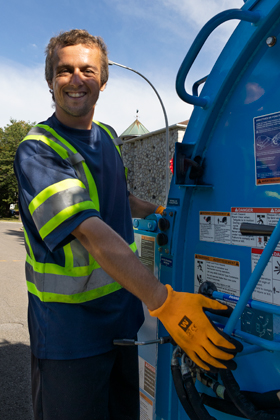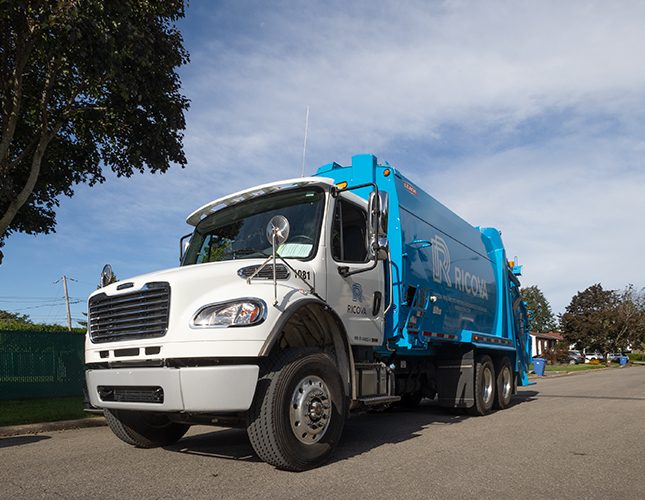Compressed Natural Gas, Ricova’s Green Choice to Replace Diesel
While electricity and hydrogen are currently the two most well-known options when it comes to the energy transition of the road sector, natural gas also does not give its place to meet ecological and climate challenges.
Ricova made that choice by renewing its truck fleet. As a result, 15 compressed natural gas (CNG) trucks will be replacing diesel trucks over time. These 15 additional trucks will complement the 40 CNG vehicles that already make up Ricova’s fleet of 130 trucks criss-crossing Quebec’s roads.
What is CNG?
Compressed natural gas is a natural gas that has been compressed, as the name suggests, and has a much smaller volume than natural gas in its gaseous form. By retaining all the properties of the latter, CNG is stored in tanks that are up to 300 times smaller in volume than its gaseous form. This makes it even easier to transport and much more versatile when it comes to refuelling natural gas trucks. Also very important to note: CNG emits up to 25% less GHGs than diesel and only one tank can cover approximately 800 kilometres.


Ricova team using a compressed natural gas (CNG) truck to collect organic materials in sector M of Brossard.
What is the difference between compressed natural gas (CNG) and liquefied natural gas (LNG)?
As their names indicate, these two types of natural gas find their differences in the form in which they are stored and used. CNG is stored in a gaseous state at a pressure of 200 or 250 bar, a unit of atmospheric pressure used mainly in diving and hydraulics. LNG, on the other hand, takes a liquid form and has the advantage of having a volume much smaller than CNG. In short, it takes up less space.
Natural gas can be transported from its source to the point of use by pipeline or it can be cooled until liquefied into LNG and transported by trucks and specialized vessels. When natural gas is delivered to a fuelling station by pipeline, it is compressed at high pressure and stored on vehicles as compressed natural gas.
When LNG is delivered to service stations by truck, it can either be distributed in LNG tanks in vehicles still in liquid form, or it can be reheated and gasified and then compressed to become CNG.
Why choose compressed natural gas?
1) For its ecological benefits
The GHGs produced by CNG are on average 25% lower than diesel. It therefore contributes to the energy transition and the reduction of GHGs in the transportation sector, which alone represents 43% of our total GHGs in Quebec!
2) Because it is safe
Natural gas is one of the safest sources of energy:
- Lighter than air, if leaked, it will rise and dissipate in the atmosphere;
- Compressed natural gas tanks are equipped with valves that release gas in case of overpressure;
- Compared to petroleum products, natural gas burns very hard.
3) Because it is less expensive
Natural gas saves up to 30% compared to diesel. Natural gas has the advantage of being suitable for all types of vehicles and is the most widely used alternative fuel with over 27 million natural gas vehicles on the world’s roads.
4) Because CNG engines are quieter
A little extra when Ricova collects in a residential area near you!
Do not hesitate to contact us if you have any questions:








